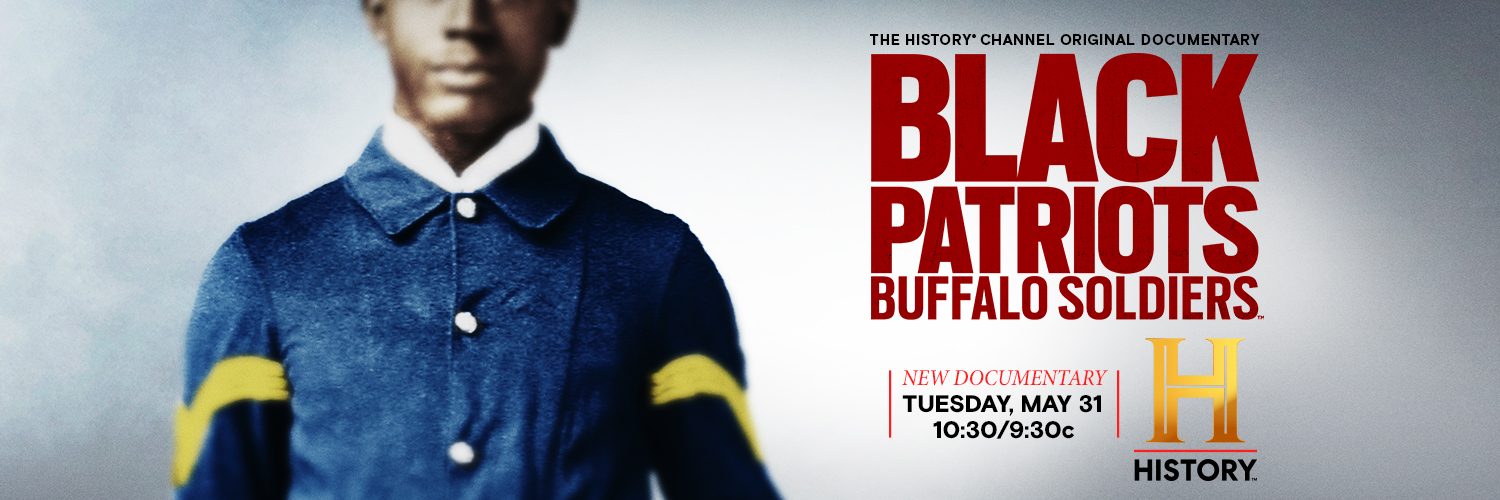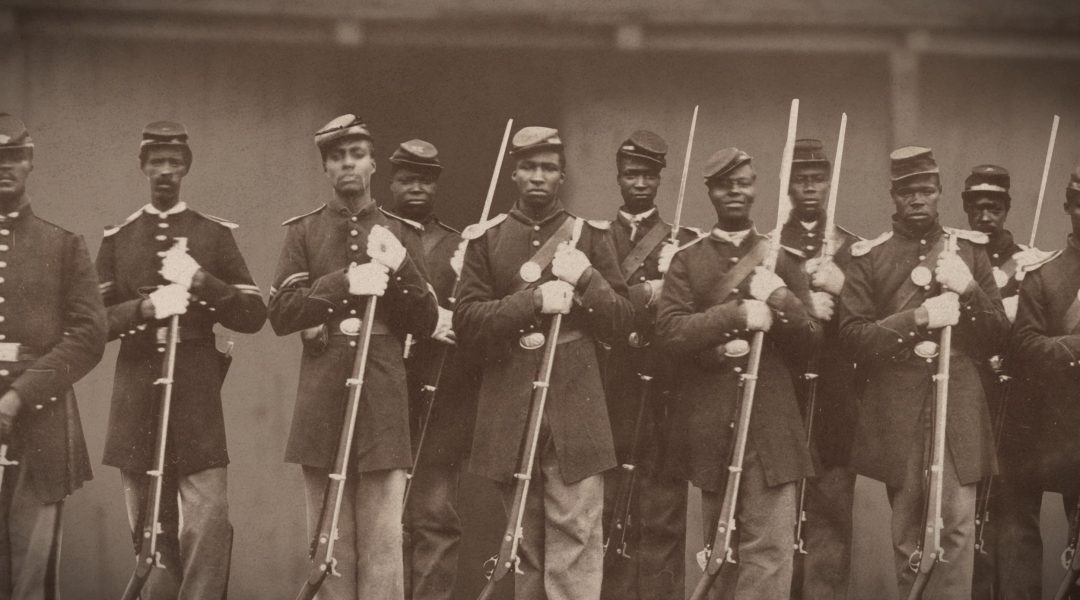The History Channel documentary pays tribute to America’s first all-Black peacetime regiments.
The History Channel illuminates the too-often overlooked story of the unwavering valor, bravery, and service displayed by fighting men of color in Black Patriots: Buffalo Soldiers, an hour-long documentary narrated by award-winning actor Blair Underwood, and scheduled to premiere at 10:30 pm ET/9:30 pm CT Tuesday, May 31 (and available to view on-demand on History's site with a cable provider).
“The History Channel is committed to highlighting historical figures and events that shaped our nation for the better,” said Eli Lehrer, History Channel executive vice president and head of programming, while announcing the project, “and the story of the Buffalo Soldiers is one of courage, perseverance and heroism that deserves to be told. We are honored to partner with Blair Underwood to bring this story to life and shed light on this incredibly important piece of history for our audiences.”
Blair Underwood added: “My father is a retired Army colonel who served for nearly three decades, so highlighting and honoring our veterans is a cause that I care deeply about. I am thrilled to partner with The History Channel to tell the story of the Buffalo Soldiers and how their bravery and insight provided endless contributions to our Nation.”
“However, the Buffalo Soldiers were fighting for more than just national expansion and victory on the battlefield. Simultaneously, they were fighting for equality and justice at home. Featuring interviews from military experts, historians and descendants of the Buffalo Soldiers and coupled with historic photography, original illustrations, and never-before-seen documents, Black Patriots: Buffalo Soldiers takes an in-depth look at an important time in American history and spotlights the remarkable soldiers who played a pivotal role in shaping and protecting the nation.”
Stacey L. Holman, an award-winning, Harlem-based producer and director, serves as an executive producer for Black Patriots: Buffalo Soldiers. Her lengthy list of credits include collaborations with Henry Louis Gates Jr. (Reconstruction: America After the Civil War) and Peabody- and Emmy-winning filmmaker/historian Stanley Nelson (Freedom Riders, which was selected in 2020 for preservation in the National Film Registry by the Library of Congress). We recently spoke with her about the new History Channel documentary. Here are some highlights from our conversation, edited for brevity and clarity.

Stacey L. Holman: Yes. And that’s why what I do with documentaries such as this is so important. Some people, they might have known the general story about [the Buffalo Soldiers], but they don’t know the specific details or they don’t know about that part of history, particularly African American men and women’s role in it. And for some, they’re stunned. Others are just disappointed. But overall, people are excited to kind of learn. But I try not to be too surprised, because unless they’re learning it from reading books about it, they may not have learned about it in school. Unless they were studying about it in college, that part of history is either cut out or abbreviated.
C&I: I know this is like asking you who is your favorite child, but whose individual story do you think fascinated you the most?
Holman: Horace Bivins. He was just hardcore. I mean, to be a decorated sharpshooter, to take part in the Indian Wars and then fight in the Spanish-American War, to get wounded in battle but continue to fight — amazing. His stories are just so fascinating. In doing films like this, you can only tell so much. But he started out at Hampton University, so he had the HBCU kind of experience there, but just wanted more. And just to see how he rose through the ranks to become who he was — I see that, and I’m like, “I’d hang out with Horace. He seems really cool.”
C&I: Your documentary also tells the story of how Buffalo Soldiers were recruited in the early 1900s to teach West Point cadets how to ride. That alone could be the basis of a dramatic feature.
Holman: That’s the thing in doing a film like this. You’re like, “That could be a film. That could be a movie. This could be...” And in this case, yeah, a lot of these Black soldiers were incredible equestrians. They really were great at riding horses. And then they have to go to a place where many of them were discriminated against — but now they’re teaching white soldiers how they can improve their military horsemanship.
C&I: And you show that, even as late as World War I, while the U.S. military was segregated, many Black soldiers, like members of the 369th Infantry Regiment, were allowed to fight only under French command.
Holman: Yeah, it’s very interesting. It’s like, “You can’t fight under the American flag, but you can fight under the French flag.” And even then, there was some drama to get them permission to fight. But they were readily accepted by the French. It’s a very fascinating and very nuanced and very complicated history. Not just with the Indian Wars or World War I, but history as a whole for the Buffalo Soldiers.
Enter your cable provider and watch on-demand at the History website.














